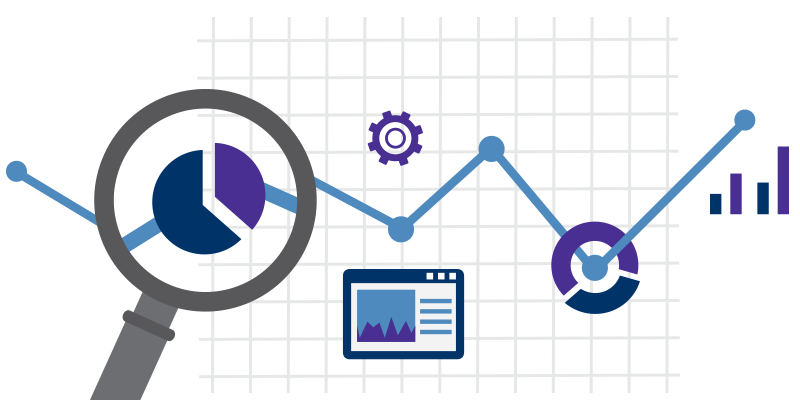
On today’s complex, fast-paced and patient-centric health care management landscape, data and business intelligence tools are essential. However, a successful implementation and appropriate staff training is just the beginning. There is another critical piece of the puzzle that ultimately determines whether the investment is rewarding or regrettable: integration.
That is, data and BI tools must be properly integrated with enterprise reporting systems to support faster, smarter decision-making across the organization. However, this is not what many organizations are experiencing. Instead of leveraging and exploiting actionable insights, they are overwhelmed with disparate, incomplete and unreliable information. At the same time, the initial enthusiasm that their team felt towards the suite of “leading edge tools” has turned into frustration. What should have been a good news story has become a cautionary tale, and it’s one that is told repeatedly in hospitals and health networks across the country.
If your organization is overloaded with information – rather than empowered with insight – then the good news is that you do not have to hit the reset button or brace for impact. Instead, as noted above you need to focus on integrating their tools into enterprise reporting systems that are flexible, dynamic and responsive. And this is where choosing the right healthcare analytics partner makes all the difference.
To help your organization choose a partner that is going to provide a sustainable solution – rather than worsen your problems and make them harder to solve down the road – here are 8 fundamental questions that you should ask before you make a selection, sign an agreement and start an engagement:
Healthcare analytics is a specialization, and your partner must be a proven expert with several years of experience. That way, you can be assured that their learning curve will be short, and they will help you take the shortest path to value.
Data visualization is both an art and a science. And while there are useful tools available, they are not enough. A team of professionals is required to select the most effective presentation to answer key questions (e.g. data grid, bar graph, control chart, funnels, dials, thermometers, etc.); ensure that data is placed in the correct context, mitigate or eliminate non-data distractions; and add elements that help busy decision-makers focus on what is most meaningful.
Canned reports and templates are extremely limited, and they invariably fail to take the most direct route to optimal solutions. As such, your partner should guide and empower you to establish priorities, and then create a customized best-fit strategy. Remember: you do not need or want a toolset, but rather a legitimate professional solutions provider that excels in creating reports that fit your specific needs; not the other way around.
Your partner must have no self-interest to steer you towards one source system vs. another. Their only objective should be to providing you with objective, informed and justifiable recommendations that fit your specific reporting requirements. If a prospective partner insists that you only work with information held in their databases, then this is not just a red flag – it is a giant stop sign!
Per your partner’s commitment to being independent and vendor agnostic (as noted in question 4), they should have the proven expertise to combine and merge data from various sources, so that you can see it all in one place. This gives you maximum flexibility and access. For example, you may want to create a unified physician scorecard that pulls data from clinical, financial, quality, HR and patient satisfaction surveys.
For many IT experts working in hospitals and health networks – especially if they are part of an undersized team – the bane of their professional existence is trying to make sense of incredibly complex and unfamiliar data and BI tools. As such, your health analytics partner must provide collaborative leadership and expert resources to plug all capacity and knowledge gaps. They must collaborate rather than compete.
As your CEO and CFO will agree, your partner must clearly explain before any engagement how and why they are measurably cost effective. Key factors that demonstrate you are heading in the right direction include:
Hospitals and health networks are complex, and things change fast and frequently. Your partner should be available to you on-demand to help you take advantage of opportunities, and resolve obstacles. And per the flat all-inclusive fee (as noted in question 7), you do not need to seek budget approval or risk spending extra money when – not if – these opportunities and obstacles arrive. This gives you the comfort in knowing that expertise you need is an email or phone call away.
Essentially, asking these 8 key questions – and getting the answers you need and expect – ensures that the healthcare analytics partner you hire will be invested in your short and long-term success, and that the only surprises you experience along the journey are of the beneficial and pleasant variety; not the shocking and stressful kind.
At Polaris Strategic Solutions, we: focus exclusively on healthcare analytics; are recognized experts in data visualization; build and deliver customized vs. generic solutions; are 100% vendor agnostic; expertly combine and merge data; work effectively with in-house IT teams; use an inclusive cost model that makes us measurably cost effective; and are available on-demand when our clients need us.
Simply put, we are not vendors who deliver services. We are partners who are invested in and committed to our clients’ success! To learn more, contact us today.